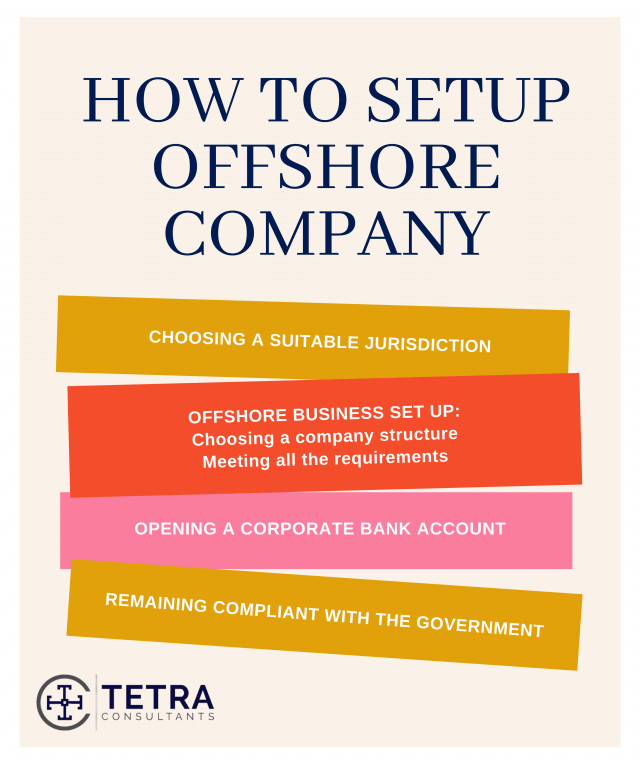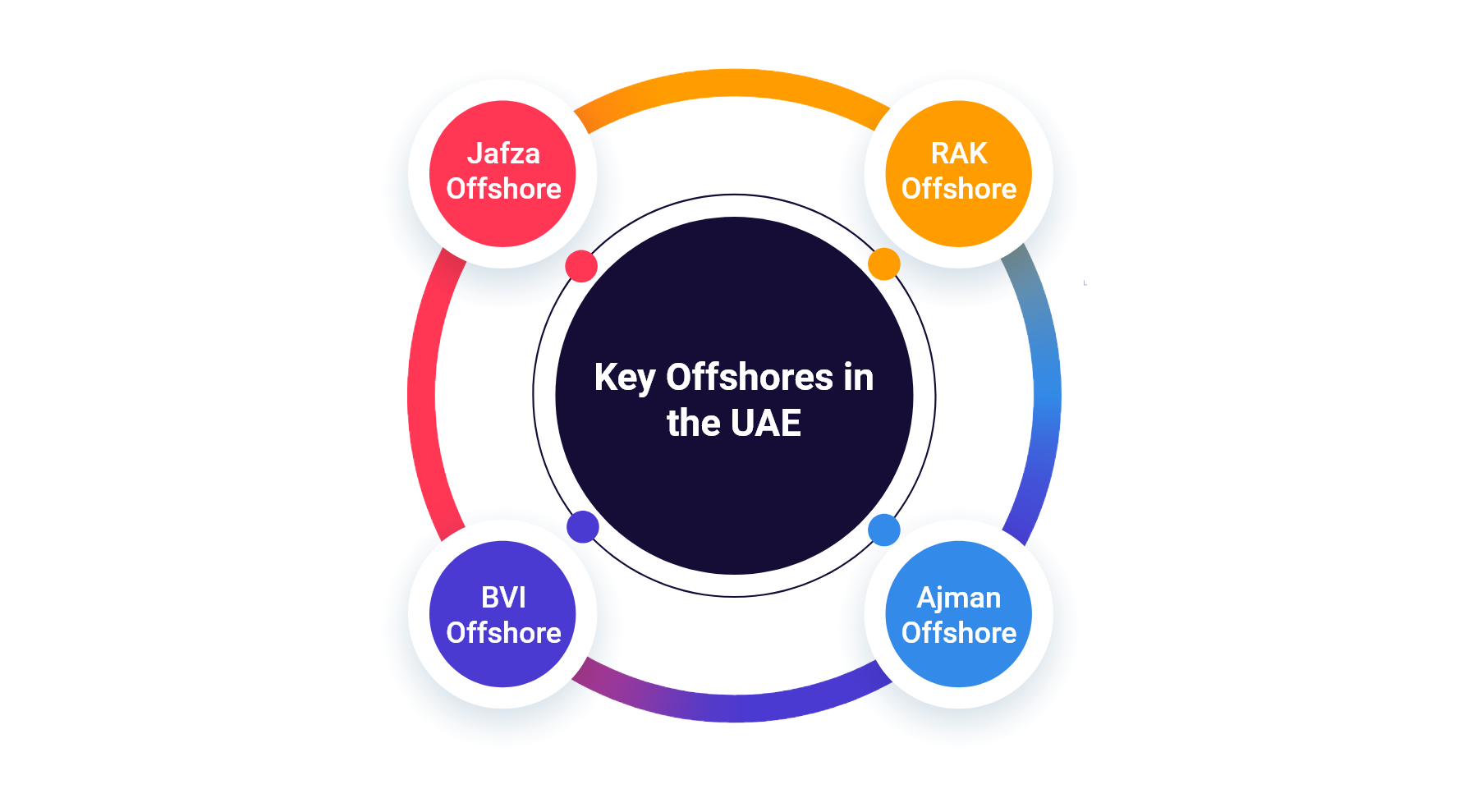Past Borders: Navigating the Formation of Offshore Companies easily
Specialist Offshore Company Monitoring
With globalization and the increasing importance of international company, even more business are discovering the benefits of developing and managing offshore entities. In this conversation, we will certainly explore the advantages of overseas business monitoring, essential considerations for offshore procedures, and reliable methods to ensure compliance and minimize risks.

Advantages of Offshore Firm Monitoring
There are numerous considerable advantages to overseas firm administration that can considerably benefit organizations looking for global growth and financial optimization. Offshore territories frequently supply desirable tax obligation regimes, including reduced or zero corporate taxes, minimized resources gains taxes, and exceptions from particular tax obligations on rewards and interest.
Another advantage is boosted privacy and asset protection. Offshore firm management allows businesses to maintain a higher level of privacy and privacy in their financial affairs. Offshore jurisdictions normally have stringent legislations and regulations in place to safeguard the identity of company owners and shareholders, making it hard for 3rd parties to accessibility delicate info. This level of privacy can be specifically valuable for businesses operating in industries where privacy is vital, such as consulting, money, or modern technology.
Additionally, offshore business management uses businesses the chance to access a global market. By developing an offshore visibility, business can increase their reach and take advantage of brand-new markets without the requirement for significant physical framework or establishment expenses. This flexibility permits businesses to swiftly adapt to changing market conditions and benefit from brand-new growth opportunities.
Secret Considerations for Offshore Workflow
One essential element to contemplate when participating in overseas firm management is the cautious factor to consider of key aspects for successful overseas procedures. These factors to consider play an important function in making certain the smooth performance and productivity of the offshore venture. It is important to assess the economic and political stability of the offshore jurisdiction. Purchasing a politically stable and economically flourishing jurisdiction decreases the danger of sudden plan changes or economic slumps that could adversely impact business. Additionally, comprehending the legal framework and regulatory atmosphere of the offshore jurisdiction is vital. Various jurisdictions have varying levels of regulatory demands and compliance requirements. It is critical to make sure that the picked jurisdiction aligns with the firm's objectives and goals. An additional crucial factor to consider is the accessibility of a knowledgeable and trustworthy workforce. Offshore operations call for a qualified labor force that can effectively handle the daily procedures and add to the growth of the business. In addition, the facilities and technical abilities of the offshore territory should be reviewed. Sufficient infrastructure and access to advanced innovation are necessary for reliable operations. Last but not least, thinking about the tax obligation implications and incentives provided by the overseas jurisdiction is important. A beneficial tax obligation regimen can provide considerable price savings and improve the total success of the offshore endeavor. By meticulously considering these key aspects, business can maximize their overseas operations and achieve long-lasting success.
Making Sure Compliance With Local Regulations
To guarantee compliance with local regulations, companies taking part in offshore procedures have to extensively stick and recognize to the specific lawful needs and regulatory framework of the offshore jurisdiction. Offshore territories usually have their own collection of legislations and guidelines that regulate various aspects of company procedures, including company formation, taxation, work, and financial reporting. It is essential for companies to acquaint themselves with these policies to prevent prospective lawful issues and fines.
One of the primary steps in making sure compliance is conducting comprehensive study on the lawful and regulative landscape of the chosen offshore territory - formation of offshore companies. This involves examining the neighborhood regulations, understanding the demands for business enrollment and licensing, and determining any kind of certain regulations that might be appropriate to the business's industry or organization tasks

Once the legal requirements are recognized, business have to take aggressive anchor procedures to adhere to them. This consists of getting the essential authorizations, licenses, and approvals before beginning operations, and making sure continuous compliance with tax obligation and reporting commitments. It is likewise essential to stay upgraded with any kind of modifications or changes to the regulations in order to continue to be compliant.
To help with conformity, look at here now firms might consider engaging the services of neighborhood legal and bookkeeping specialists who are fluent in the overseas jurisdiction's guidelines. These experts can supply assistance and assistance in browsing the intricate legal landscape, helping business to stay clear of compliance pitfalls and guarantee smooth procedures.
Tax Obligation Preparation Strategies for Offshore Organizations
Effective tax obligation planning is essential for overseas businesses to maximize their tax obligations and optimize their monetary performance. Offshore companies often have the advantage of undergoing beneficial tax obligation regimens, which can dramatically reduce their tax obligation burden. Nevertheless, to totally gain from these advantages, it is critical to develop reliable tax planning methods.
One common tax obligation preparation method for overseas organizations is utilizing tax obligation treaties. These treaties are arrangements in between nations that aim to stop dual taxes and provide tax relief for organizations operating in multiple territories (formation of offshore companies). By making use of these treaties, overseas organizations can minimize their tax obligation responsibilities and make certain that they are not paying tax obligations on the very same revenue in multiple countries
Another approach is establishing a tax-efficient business structure. This involves establishing a holding business in a tax-friendly jurisdiction and structuring the business operations in a means that decreases tax obligations. By carefully planning the possession and control of the overseas company, it is possible to reduce taxes on profits, dividends, and resources gains.
Furthermore, overseas organizations can involve in transfer prices methods to maximize their tax position. Transfer pricing includes figuring out the costs at which products, solutions, and intellectual home are transferred in between associated entities within the same international group. By establishing transfer rates at an optimal degree, offshore businesses can allocate earnings to low-tax jurisdictions, reducing their general tax responsibility.
Reducing Threats in Offshore Operations
Offshore businesses have to prioritize lessening risks in their procedures to make sure lasting success and monetary security. Running in an offshore jurisdiction provides distinct obstacles and uncertainties that require careful administration. To efficiently minimize risks, offshore organizations must embrace an aggressive method by executing robust threat management approaches.
One trick aspect of danger minimization is carrying out extensive due persistance prior to involving in any kind of overseas transactions or collaborations. This entails investigating and verifying the online reputation, financial stability, and legal conformity of potential additional hints business companions or solution providers. By extensively vetting these entities, overseas organizations can minimize the danger of deceptive tasks or association with illegal procedures.
Furthermore, offshore businesses ought to execute thorough inner control systems to find and stop any kind of prospective illegal tasks within the company. This consists of establishing clear policies and procedures, segregation of obligations, regular surveillance, and inner audits. By preserving a durable internal control framework, overseas services can alleviate the threat of interior fraudulence and unapproved activities.
In addition, offshore services must focus on conformity with worldwide laws and anti-money laundering (AML) measures. Remaining up-to-date with evolving regulatory requirements and implementing reliable AML treatments can reduce the risk of lawful repercussions and reputational damages.
Lastly, overseas businesses should think about acquiring ideal insurance protection to shield against unforeseen occasions such as all-natural disasters, political instability, or lawful conflicts. Insurance policy policies tailored to offshore operations can supply financial settlement and assistance throughout times of dilemma, making sure the continuity of company tasks.

Conclusion
Finally, overseas company management offers different benefits such as tax preparation techniques, lessening threats, and guaranteeing conformity with regional guidelines. Nevertheless, it is vital for services to thoroughly think about key aspects for offshore operations and browse the complexities of various territories. By implementing effective management strategies and staying updated with regional laws, companies can effectively operate offshore and enjoy the advantages of worldwide organization opportunities.
In this conversation, we will discover the benefits of overseas company administration, essential factors to consider for overseas procedures, and efficient methods to make certain compliance and minimize threats.One crucial facet to consider when engaging in offshore business management is the mindful factor to consider of key aspects for successful offshore operations.To guarantee conformity with local laws, business involving in overseas procedures have to thoroughly recognize and stick to the particular legal requirements and regulative structure of the overseas territory. Offshore jurisdictions normally have their own set of laws and policies that regulate different aspects of organization procedures, including firm development, taxation, work, and monetary reporting. By executing efficient administration methods and remaining updated with neighborhood policies, companies can effectively operate offshore and reap the benefits of global organization chances.